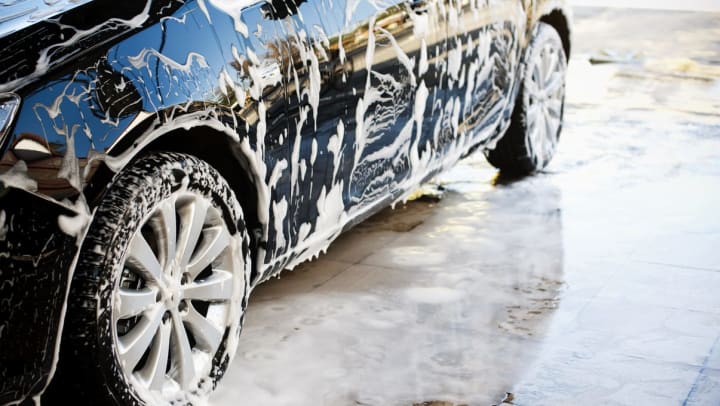Air conditioners are some of the hardest-working systems in a home. They run for long hours during hot months, cycling on and off to maintain comfortable indoor temperatures. Like any machine, they need attention when problems arise. But over the years, a number of myths about AC repair have circulated—misconceptions that can actually make issues worse and cost homeowners more money in the long run.
Believing in these myths can lead to neglect, unnecessary expenses, or even early replacement of equipment. The truth is that air conditioning systems are complex, and ignoring real signs of trouble while relying on hearsay is never a good approach. By separating fact from fiction, homeowners can make smarter decisions about maintaining their comfort systems.
Reliable companies like Pelican Heating & Air stress the importance of addressing problems quickly and accurately. Knowing which myths to avoid is a big step toward protecting your system and your wallet.
Myth 1: If the AC Is Still Cooling, It Doesn’t Need Repair
One of the most common assumptions is that as long as cool air is coming from the vents, everything must be fine. In reality, many AC issues begin subtly. Strange noises, weak airflow, or uneven temperatures can all indicate underlying problems that require attention.
Delaying service in these cases can cause small issues—like loose parts or minor refrigerant leaks—to become major breakdowns. Even if your system appears to be cooling, arranging for timely AC repair can save you from higher bills and more costly fixes later.
Myth 2: Bigger Repairs Can Always Wait Until Next Season
Some homeowners postpone major repairs until the weather changes, thinking the system can limp along until then. This approach is risky. Operating a unit with failing components often leads to more severe damage. A broken fan motor or compressor doesn’t just affect cooling—it can damage connected parts and create a domino effect of failures.
The cost of waiting often outweighs the inconvenience of addressing the issue right away. Handling AC repair promptly ensures efficiency and prevents bigger headaches when you need cooling the most.
Myth 3: Turning the Thermostat Lower Cools the Home Faster
It’s tempting to crank the thermostat down on a hot day, believing the system will cool the house more quickly. Unfortunately, this doesn’t work. Air conditioners operate at a steady pace, regardless of how low the thermostat is set.
Lowering the thermostat only forces the unit to run longer, increasing wear and energy use without speeding up the process. The best practice is to set the thermostat to your desired temperature and let the system work as designed. If cooling feels too slow, that’s a sign the system may need service.
Myth 4: DIY Fixes Are Always Cheaper
With so many online guides available, it’s easy to believe that air conditioning repairs can be handled without professional help. While homeowners can perform simple tasks like changing filters or cleaning vents, complex repairs are best left to trained technicians.
Modern AC systems involve refrigerants, electrical connections, and delicate components. Mistakes during DIY repairs can damage the unit, reduce efficiency, or even create safety hazards. In many cases, attempting to fix problems without proper training ends up costing more than professional AC repair would have in the first place.
Myth 5: Frequent Cycling Is Normal in Hot Weather
Air conditioners naturally work harder during heat waves, but frequent cycling—turning on and off every few minutes—is not normal. This issue often points to problems such as dirty coils, low refrigerant, or an improperly sized unit.
Frequent cycling increases wear and shortens the lifespan of the system. Ignoring the issue can result in complete system failure. Identifying and correcting the cause of rapid cycling is essential for protecting your investment.
Myth 6: Closing Vents in Unused Rooms Saves Energy
It might seem logical to close vents in unused spaces to push cool air into other parts of the home. However, this practice can create pressure imbalances in the ductwork. The system then works harder, leading to leaks, reduced efficiency, and possible damage to the blower motor.
Air conditioners are designed to cool the entire home as a balanced system. Closing vents disrupts this balance, and instead of saving energy, it often results in higher bills and the need for avoidable repairs.
Myth 7: AC Repair Is Always Expensive
The perception that every repair will be costly prevents some homeowners from calling for help when problems start. In reality, many repairs are minor and inexpensive when caught early. Replacing a worn belt or cleaning a clogged drain line, for example, costs far less than replacing a burned-out compressor that failed because the problem was ignored.
The longer issues are left unresolved, the more expensive they tend to become. Timely service is the best way to keep repair costs under control.
Why These Myths Persist
AC systems are often taken for granted until they fail, which leaves room for misinformation to spread. People repeat what they’ve heard without questioning whether it’s accurate. Unfortunately, following these myths can shorten the lifespan of your system and make it less efficient.
Taking a proactive approach and questioning common assumptions helps you protect both your comfort and your budget.
The Role of Professionals in Clearing the Confusion
A trained technician can quickly identify whether concerns are real or exaggerated. They know the difference between normal operation and early signs of trouble. Seeking expert advice rather than relying on myths ensures the system gets the care it actually needs.
This is why working with providers such as Pelican Heating & Air makes such a difference. Professional guidance helps homeowners avoid costly mistakes while extending the life of their equipment.
Conclusion: Don’t Let Myths Drive Your Decisions
Air conditioners are vital to household comfort, but misconceptions about how they work or when to repair them often lead to unnecessary expenses. From believing that cooling means everything is fine to assuming repairs can always wait, these myths put both efficiency and reliability at risk.
By recognizing the truth behind these common misunderstandings, homeowners can act sooner, save money, and keep their systems performing at their best. With the right knowledge—and the support of trusted professionals—AC repair becomes less about crisis management and more about smart, proactive care.



